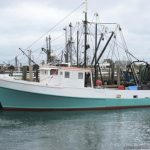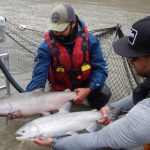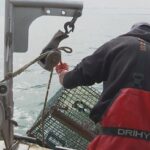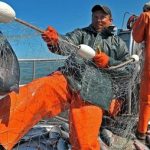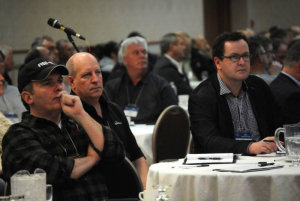Tag Archives: Unified Fisheries Conservation Alliance
Sipekne’katik claims ‘significant progress’ in talks with Ottawa over controversial N.S. lobster fishery
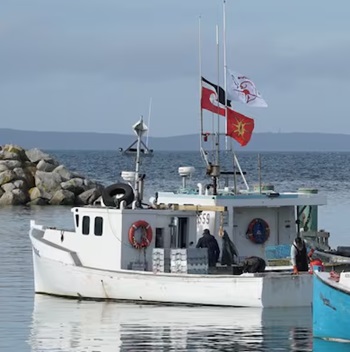 The First Nation at the centre of a highly contentious out-of-season lobster fishery in southwest Nova Scotia says mediation with the federal government is bearing fruit, with lengthy meetings between both sides leading to the first “meaningful dialogue” in 25 years. The comments from the lawyer for Sipekne’katik First Nation come in a letter to a Nova Scotia Supreme Court judge that asks that litigation launched by the band against the federal government in 2021 be paused for another six months to allow negotiations to continue. The two sides, along with intervenor Unified Fisheries Conservation Alliance, which represents commercial fishing interests, are expected to discuss the time extension in court this morning. more, >>CLICK TO READ<< 08:02
The First Nation at the centre of a highly contentious out-of-season lobster fishery in southwest Nova Scotia says mediation with the federal government is bearing fruit, with lengthy meetings between both sides leading to the first “meaningful dialogue” in 25 years. The comments from the lawyer for Sipekne’katik First Nation come in a letter to a Nova Scotia Supreme Court judge that asks that litigation launched by the band against the federal government in 2021 be paused for another six months to allow negotiations to continue. The two sides, along with intervenor Unified Fisheries Conservation Alliance, which represents commercial fishing interests, are expected to discuss the time extension in court this morning. more, >>CLICK TO READ<< 08:02
Commercial fishers seek $10 million in damages against ‘illegal’ N.S. lobster buyers
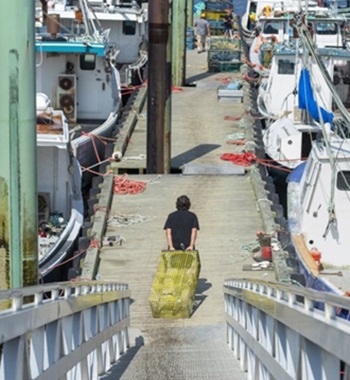 A commercial lobster fishing group in Nova Scotia has gone to court seeking $10 million in damages against those it alleges are buying lobster caught illegally in St. Mary’s Bay. The Unified Fisheries Conservation Alliance filed notice in the Supreme Court of Nova Scotia on Tuesday against Independent Fisheries Limited of Little Harbour, N.S., and its president Xiaoming Mao. The alliance is also suing the owners and operators of Fisher Direct Ltd. and Seawell Holdings Ltd., both based in Shag Harbour, N.S. The allegations have not been proven in court, and the defendants either declined to comment or were not immediately available to respond today. more, >>CLICK TO READ<< 12:28
A commercial lobster fishing group in Nova Scotia has gone to court seeking $10 million in damages against those it alleges are buying lobster caught illegally in St. Mary’s Bay. The Unified Fisheries Conservation Alliance filed notice in the Supreme Court of Nova Scotia on Tuesday against Independent Fisheries Limited of Little Harbour, N.S., and its president Xiaoming Mao. The alliance is also suing the owners and operators of Fisher Direct Ltd. and Seawell Holdings Ltd., both based in Shag Harbour, N.S. The allegations have not been proven in court, and the defendants either declined to comment or were not immediately available to respond today. more, >>CLICK TO READ<< 12:28
Fishing group expresses concern about oil spill in Saulnierville Harbour
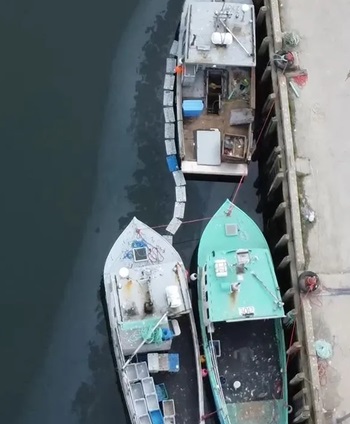 A fishing organization is concerned that a recent oil spill near the government wharf in Saulnierville, N.S., could make people sick and have disastrous implications for the province’s seafood industry if it’s not addressed as soon as possible. The Unified Fisheries Conservation Alliance released video on Thursday of fishing vessels along the wharf surrounded by oil. Tied to some of those boats are crates of lobster floating in the water. “When we saw it we were pretty shocked,” Colin Sproul, the alliance president said in an interview. “We’re really concerned that oil-soaked lobster is going to make it into the marketplace and make people sick.” Officials with the federal government have not yet responded to requests for comment. more, >>CLICK TO READ<< 08:44
A fishing organization is concerned that a recent oil spill near the government wharf in Saulnierville, N.S., could make people sick and have disastrous implications for the province’s seafood industry if it’s not addressed as soon as possible. The Unified Fisheries Conservation Alliance released video on Thursday of fishing vessels along the wharf surrounded by oil. Tied to some of those boats are crates of lobster floating in the water. “When we saw it we were pretty shocked,” Colin Sproul, the alliance president said in an interview. “We’re really concerned that oil-soaked lobster is going to make it into the marketplace and make people sick.” Officials with the federal government have not yet responded to requests for comment. more, >>CLICK TO READ<< 08:44
Lobster group files legal action over moderate livelihood fishery
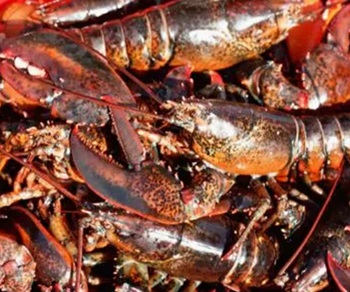 A lobster conservation group in southwestern Nova Scotia is taking legal action against Ottawa and the Sipekne’katik First Nation over out of season fishing. The Unified Fisheries Conservation Alliance (UFCA) filed a notice of action in Supreme Court in an effort to declare the summer fishery illegal. “The Supreme Court of Canada introduced the concept of a moderate livelihood fishery via the Marshall decisions but has never adequately defined the scope and limits that should apply,” said Michel Samson, counsel with the law firm Cox & Palmer. “This has created confusion between the DFO and the Public Prosecution Service as to what laws to enforce. It is imperative that our courts provide the rules and clarity required for both the commercial fishery and for First Nation communities.” more, >>CLICK TO READ<< 13:05
A lobster conservation group in southwestern Nova Scotia is taking legal action against Ottawa and the Sipekne’katik First Nation over out of season fishing. The Unified Fisheries Conservation Alliance (UFCA) filed a notice of action in Supreme Court in an effort to declare the summer fishery illegal. “The Supreme Court of Canada introduced the concept of a moderate livelihood fishery via the Marshall decisions but has never adequately defined the scope and limits that should apply,” said Michel Samson, counsel with the law firm Cox & Palmer. “This has created confusion between the DFO and the Public Prosecution Service as to what laws to enforce. It is imperative that our courts provide the rules and clarity required for both the commercial fishery and for First Nation communities.” more, >>CLICK TO READ<< 13:05
Commercial fishers demand stricter enforcement and penalties for illegal lobster sales – Federal and provincial governments need to step-up enforcement
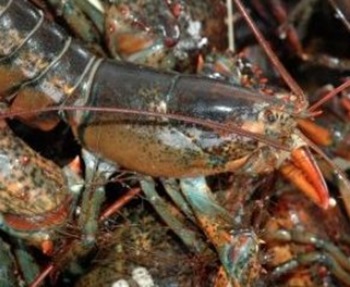 Uncertainty on the future of the commercial fishery will potentially put the sustainability of the lobster catch and jobs at risk according to the leaders of the Coalition of Atlantic and Quebec Fishing Organizations and the Unified Fisheries Conservation Alliance (UFCA). The upcoming meeting of fisheries ministers from across Canada is a unique opportunity to make sure the commercial fishery remains sustainable. Action is needed from both federal and provincial officials. For the Government of Canada, keeping independent enforcement officers on the water is critical to making sure no one fishes out of season. “Enforcing one set of rules for everyone is the key to a strong fishery. Impartial, independent enforcement officers at Department of Fisheries and Oceans is at the heart of a sustainable fishery,” according to Gordon Beaton, president of the Gulf Nova Scotia Fleet Planning Board. “We are concerned about potential changes to enforcement, we need more, not less, independent enforcement of the rules.” Science, not politics, should be driving decisions on the fishery. more, >>CLICK TO READ<< 17:40
Uncertainty on the future of the commercial fishery will potentially put the sustainability of the lobster catch and jobs at risk according to the leaders of the Coalition of Atlantic and Quebec Fishing Organizations and the Unified Fisheries Conservation Alliance (UFCA). The upcoming meeting of fisheries ministers from across Canada is a unique opportunity to make sure the commercial fishery remains sustainable. Action is needed from both federal and provincial officials. For the Government of Canada, keeping independent enforcement officers on the water is critical to making sure no one fishes out of season. “Enforcing one set of rules for everyone is the key to a strong fishery. Impartial, independent enforcement officers at Department of Fisheries and Oceans is at the heart of a sustainable fishery,” according to Gordon Beaton, president of the Gulf Nova Scotia Fleet Planning Board. “We are concerned about potential changes to enforcement, we need more, not less, independent enforcement of the rules.” Science, not politics, should be driving decisions on the fishery. more, >>CLICK TO READ<< 17:40
Sipekne’katik First Nation granted a temporary adjournment to allow for mediation with the Crown
 A Nova Scotia Supreme Court judge has granted a joint request from the Sipekne’katik First Nation and the Attorney General of Canada to adjourn trial dates that would have aimed to settle treaty fishing rights disputes. The court has decided to give the involved parties until December 12, 2024, to have a defined and active mediation process in place, if not, proceeding with litigation would be re-examined. The Unified Fisheries Conservation Alliance (UFCA), which represents the interests of its members who are commercial fishers in the Gulf and Maritimes regions, asserts that the courts must finally decide the scope of Marshall rights for Indigenous Peoples. “The fact that the Sipekne’katik First Nation is attempting to settle treaty fishing rights issues outside of court is a historic precedent considering the court system has been at the center of Indigenous claims to the fishery and rights in particular for decades,” said Colin Sproul, President of the UFCA. more, >>CLICK TO READ<< 15:25
A Nova Scotia Supreme Court judge has granted a joint request from the Sipekne’katik First Nation and the Attorney General of Canada to adjourn trial dates that would have aimed to settle treaty fishing rights disputes. The court has decided to give the involved parties until December 12, 2024, to have a defined and active mediation process in place, if not, proceeding with litigation would be re-examined. The Unified Fisheries Conservation Alliance (UFCA), which represents the interests of its members who are commercial fishers in the Gulf and Maritimes regions, asserts that the courts must finally decide the scope of Marshall rights for Indigenous Peoples. “The fact that the Sipekne’katik First Nation is attempting to settle treaty fishing rights issues outside of court is a historic precedent considering the court system has been at the center of Indigenous claims to the fishery and rights in particular for decades,” said Colin Sproul, President of the UFCA. more, >>CLICK TO READ<< 15:25
Sipekne’katik First Nation, federal government to begin mediation in effort to settle fishing dispute
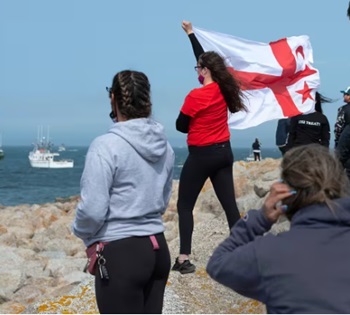 Litigation scheduled for next year that could have helped settle outstanding questions about treaty fishing rights related to the Marshall decisions will no longer happen, after a Nova Scotia Supreme Court judge granted a joint request from Sipekne’katik First Nation and the Attorney General of Canada to instead focus on mediation. The decision stems from a lawsuit Sipekne’katik filed in 2021 that wanted a declaration from the court that the federal Fisheries Act and regulations infringe on the treaty right to fish lobster for a moderate livelihood. That includes the prohibition on catching and holding lobsters without a licence and fishing outside of a commercial season. The trial was to start in May 2025, but this April, just as witness discovery was set to begin, the two parties served notice to the court that they’d reached an agreement to focus instead on mediation. They filed a joint request to have the trial dates and all other pretrial milestones adjourned. more, >>CLICK TO READ<< 12:37
Litigation scheduled for next year that could have helped settle outstanding questions about treaty fishing rights related to the Marshall decisions will no longer happen, after a Nova Scotia Supreme Court judge granted a joint request from Sipekne’katik First Nation and the Attorney General of Canada to instead focus on mediation. The decision stems from a lawsuit Sipekne’katik filed in 2021 that wanted a declaration from the court that the federal Fisheries Act and regulations infringe on the treaty right to fish lobster for a moderate livelihood. That includes the prohibition on catching and holding lobsters without a licence and fishing outside of a commercial season. The trial was to start in May 2025, but this April, just as witness discovery was set to begin, the two parties served notice to the court that they’d reached an agreement to focus instead on mediation. They filed a joint request to have the trial dates and all other pretrial milestones adjourned. more, >>CLICK TO READ<< 12:37
Lobster fishers want to see a crack down on poaching in southwestern Nova Scotia
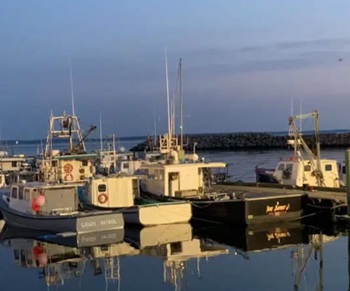 The issue was raised during a meeting in Yarmouth among industry members and the Department of Fisheries and Oceans (DFO). They’re worried more moderate livelihood fishing will dominate St. Mary’s Bay. First Nations fishers maintain their Treaty rights to fish. DFO has not authorized that fishery, but they do allow some Food, Social and Ceremonial licenses. Colin Sproul with the Unified Fisheries Conservation Alliance says catches were low in the bay during the fall season. “Everybody in southwestern Nova Scotia knows why that is. I think it’s incumbent on the government to act now, before lobster fishing in St. Mary’s Bay is a thing of the past,” said Sproul. more, >>CLICK TO READ<< 05:53
The issue was raised during a meeting in Yarmouth among industry members and the Department of Fisheries and Oceans (DFO). They’re worried more moderate livelihood fishing will dominate St. Mary’s Bay. First Nations fishers maintain their Treaty rights to fish. DFO has not authorized that fishery, but they do allow some Food, Social and Ceremonial licenses. Colin Sproul with the Unified Fisheries Conservation Alliance says catches were low in the bay during the fall season. “Everybody in southwestern Nova Scotia knows why that is. I think it’s incumbent on the government to act now, before lobster fishing in St. Mary’s Bay is a thing of the past,” said Sproul. more, >>CLICK TO READ<< 05:53
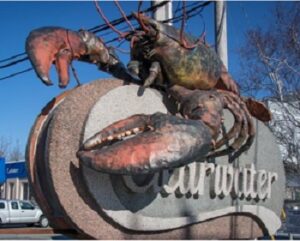
Clearwater Seafoods wants 72 tonnes of lobster added to its annual harvesting quota
The Indigenous-owned company has exclusive rights to Lobster Fishing Area 41, or LFA 41, off southern Nova Scotia, where Clearwater maintains a long-held quota of 720 tonnes. Last fall, the Membertou First Nation and Mi’kmaw partners in the company asked the Department of Fisheries and Oceans to increase the total allowable catch by ten per cent. In response, DFO has issued an “interim” total allowable catch of 720 tonnes for 2023 while it considers this request. The Brazil Rock Lobster Association, the Coldwater Lobster Association and the LFA 33 Advisory Committee have submitted letters to DFO in opposition. >click to read< 08:44
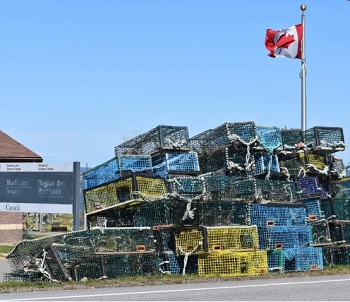
Nova Scotia cracks down on lobster operators to protect industry’s ‘integrity’- Suspensions issued at 2 lobster pounds
In August 2018, Fisher Direct in Shag Harbour, N.S., was caught with lobster harvested under an Indigenous licence, which bars selling the catch. The pound, which has annual sales upwards of $20 million, had received a shipment of 1,400 kilograms of lobsters the day before federal fisheries officers descended on the facility. Inside the 31 crates, officers found 48 lobsters tagged for Indigenous food, social or ceremonial purposes that the department had previously microchipped. Meanwhile, a larger operation in southwestern Nova Scotia is also facing at least one licence suspension. In 2021, Atlantic ChiCan on Cape Sable Island was convicted for illegally shipping American lobsters to China, claiming they came from Canada. >click to read< 07:16

Fisheries report brings hope to Indigenous communities, sparks anger in industry
“I was pleasantly surprised, to be honest,” said Rosalie Francis, a member of the Sipekne’katik First Nation in Nova Scotia. But elsewhere in the province, the surprise has been significantly less pleasant. There are concerns the report titled “Peace on the Water” is instead stoking anger in communities where lobster is a livelihood. Representatives of the commercial fishing industry say they’re frustrated they weren’t invited to speak to the Senate as it drafted the report on Indigenous rights. It’s “throwing fuel on a fire” in an area where tensions have remained high since 2020, said Colin Sproul, president of the Unified Fisheries Conservation Alliance, which has about 1,900 members. >click to read< 12:09

UFCA President Says Important Days Coming In Court
The group representing 2,000 commercial fishing stakeholders in Nova Scotia and New Brunswick have been granted intervener status in several Indigenous court cases. The latest came in December in a notice of application brought forward by the Sipekne’katik First Nation to the Supreme Court of Canada. The band’s application is against the federal government, challenging their regulation and enforcement of Indigenous fisheries. UFCA President Colin Sproul says these are the most vital court cases since the Marshall Decision. He says the UFCA’s goal is to have one set of rules for all fishers, within established seasons, and they are committed to a peaceful solution with all parties involved. >click to read< More UFCA >click< 14:26
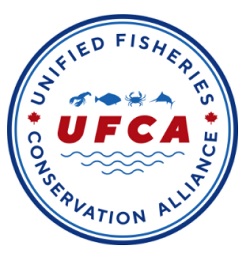
UFCA Granted Intervenor Status In Sipekne’katik Court Case
The Unified Fisheries Conservation Alliance has been granted intervenor status in another court case involving indigenous fisheries. They will be part of the Notice of Application brought by the Sipekne’katik First Nation against the Attorney General of Canada to challenge the regulation and enforcement of Indigenous fishing activities. UFCA President Colin Sproul discusses why it’s important for them to be involved. >click to read< 09:12
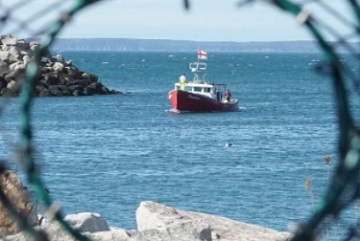
4 Mi’kmaw bands launch moderate livelihood fisheries with government approval
In a news release Wednesday, the Assembly of Nova Scotia Mi’kmaw Chiefs said the treaty fisheries will happen in the Acadia, Annapolis Valley, Bear River and Glooscap First Nations. The group said the Kespukwitk District Netukulimk Livelihood Fisheries Plan will start Thursday, though not all communities will launch then. The Mi’kmaw chiefs said they are following the path set out by the Potlotek First Nation to fish and co-operate with the Department of Fisheries and Oceans.,, The Unified Fisheries Conservation Alliance, which represents commercial fishers, said its members support the deal. “We believe this is an important step in the right direction,,,” >click to read< 19:31

Nova Scotia fishing industry granted intervenor status in Mi’kmaw treaty rights case
The ruling Friday afternoon by Supreme Court Justice John Keith gives the Unified Fisheries Conservation Alliance standing in a proceeding against the Canadian government by the Potlotek First Nation. The Cape Breton band is seeking an injunction to prevent the Department of Fisheries and Oceans from interfering with its self-regulated moderate livelihood lobster fishery. It wants a court declaration that enforcement of the federal Fisheries Act infringes on its treaty right to earn a moderate living from fishing. In an oral decision, Keith said UFCA’s intervention would not unduly delay, prejudice or politicize Potlotek’s case. He said as a group representing fishers using the same shared and finite resource, UFCA has a direct interest in the case. >click to read< 17:45

Potlotek First Nation seeking injunction to prevent DFO from interfering with self-regulated fishery
Nova Scotia commercial fishermen will find out Friday whether they can intervene in a court case that tests the federal government’s authority to regulate a Mi’kmaw lobster fishery. The Potlotek First Nation is seeking an injunction to prevent the DFO from interfering with its self-regulated moderate livelihood lobster fishery. The Cape Breton band wants a court declaration that enforcement of the federal Fisheries Act infringes on its treaty right to earn a moderate living from fishing. Justice John Keith said he will issue a decision Friday afternoon. Colin Sproul, a spokesperson for the Unified Fisheries Conservation Alliance, “All I can say is that we’re really happy to have the opportunity to share our perspectives with the court, but I can’t really comment much more than that while there are the issues before the court,” >click to read< 22:40
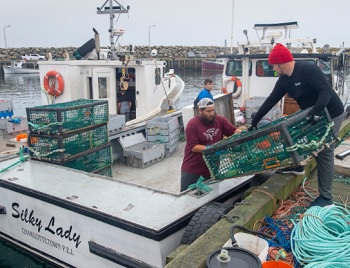
Crab traps seized by DFO during food fishery-Mi’kmaq fisher argues feds becoming more aggressive in seizures
Robert Syliboy and his crew dropped ten traps into the deep waters of the Atlantic Ocean to harvest snow crab for a community feast.,, He said the crab traps were seized before he reached the shore. video, >click to read< Mi’kmaq fisher argues feds becoming more aggressive in seizures of Indigenous gear -“I told fisheries officers I was fishing under the chief and council’s authority, and all the fish was going for food,” Syliboy said. “They disregarded the treaty I was fishing under.” The Indigenous band has cited Supreme Court of Canada rulings, including the Sparrow case in 1990, as affirmations of the Mi’kmaq practice of harvesting fish for ceremonies, food and gatherings. >click to read< 08:42

Commercial fishermen seek intervenor status in First Nation’s lawsuit
A group representing commercial fishermen in Atlantic Canada wants to be part of the lawsuit the Sipekne’katik First Nation has launched against the provincial government. The Unified Fisheries Conservation Alliance has applied for intervenor status. In a news release announcing its intention to try to join the court action, the alliance said it supports the Indigenous right to fish and sell their catch. However, spokesperson Colin Sproule said, “We are opposed to anyone, Indigenous or non-Indigenous, selling fish caught outside federal or provincial regulations related to size, season and quota.”>click to read< 09:18



































